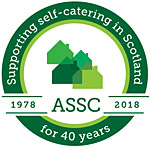8th February 2021
Background
- The Local Government and Communities Committee recently voted to recommend that the Scottish Government’s Short-Term Let Control Areas Regulations and Licensing Order be approved, the latter being secured by the narrowest of margins and MSPs identified serious flaws in the plans.
- We expect MSPs to vote in plenary imminently on whether to accept/reject these SSIs which will mark the culmination of what the ASSC believes to be a rushed process, one which will hold serious negative consequences for the Scottish tourism sector.
- Throughout the recent regulatory discussion, the ASSC highlighted concerns over the following: the truncated consultation process; the impact of Covid-19 on the sector, the lack of a Business Regulatory Impact Assessment (BRIA) to accompany the consultation; the inadequacy of the late BRIA; the lack of consideration of proportionate alternatives to licensing; and that the draft SSIs would entail unintended consequences.[1] Disappointingly, these concerns were not acted upon by government.
- The strength of feeling on this issue was highlighted by the evidence presented to Local Government Committee. They received an unprecedented level of correspondence from individual self-caterers and B&B owners whose businesses have been severely affected by pandemic but who will now be captured by these regulations.
- The ASSC hopes that policymakers will now reconsider these proposals, support our vital tourism industry in Scotland during these challenging times, and work together to progress viable, balanced and proportionate regulations.
Main Problems with Regulations
- Overall, the Scottish Government’s plans are a blunt tool to fix a perceived and localised problem of amateur operators in, primarily, Edinburgh, rather than being a solution that is appropriate for the whole of the Scotland. The regulations offer no flexibility to local authorities where concerns over short-term lets are not an issue. These regulations will hit rural Scotland hard, with many related businesses and communities depending on the economic footfall generated by visitors to self-catering accommodation.
- The scope of the regulations has now spiralled out of control as small B&Bs will be captured by the licensing regime, which we do not believe to have been the policy intention of the Scottish Government. The Scottish Government’s Short-Term Let Delivery Group did not consult with the B&B sector which we believe would be a basic duty given the impact of the regulations.
- We are incredibly disappointed at the lack of adequate scrutiny for these regulations which will affect the lives and livelihoods of professional self-caterers throughout Scotland. We note that the Scottish Government refused the Local Government Committee’s invitation to provide it with draft instruments before laying them which could have resulted in better SSIs.
- Similarly, it is disappointing that there is no opportunity to amend the regulations. We ought to get the regulations right at the first opportunity and not rely on revisiting the rules once implemented as the Scottish Government propose.
- Small business concerns have been consistently ignored. Calls for a sensible postponement to enable the tourism industry to recover from Covid-19 were disregarded, despite the fact that this would mirror the approach taken to the Transient Visitor Levy. This included a letter from October 2020, signed by 38 leading stakeholders, including the ASSC alongside the Scottish Tourism Alliance, the FSB, CBI Scotland, and Scottish Land & Estates.[2]
- If passed, the consequences of the regulations are not limited to Scottish tourism. Several local councils highlighted the administrative and financial burden of the regulations, as the Scottish Government will not provide additional funding for initial set-up costs[3], with Highland Council now calling for implementation to be delayed.[4]
Conclusion and Recommendations
- The traditional self-catering sector is not averse to regulation and have been at the forefront of presenting comprehensive and robust set of policy recommendations that have been shared with government.[5]
- Since September 2020 alone, Frontline Consultants estimated that the Scottish self-catering sector lost over £265M due to Covid-19 restrictions[6] and these SSIs have the potential to merely compound these difficulties.
- As shown by our survey, nearly half (49%) of operators would leave the self-catering sector if the proposed licensing scheme was introduced.[7] This will be devastating for Scottish tourism at a time when we should be supporting business for a sustainable recovery.
- It is our preference that the Scottish Government would move to withdraw the Regulations so that better ones could be laid in the next parliamentary session.
- We implore you to vote against the SSIs and work with us to devise world-leading regulations that work for all – small business, tourism and local communities.
FIONA CAMPBELL, CEO, ASSOCIATION OF SCOTLAND’S SELF-CATERERS
8TH FEBRUARY 2021
[1] A copy of the ASSC’s written evidence to the Local Government and Communities Committee can be accessed here: https://www.assc.co.uk/policy/stl-licensing-assc-submission-to-local-government-communities-committee/
[2] https://www.assc.co.uk/industry-letter-to-government-tourism-sector-urges-regulations-rethink/
[3] https://www.parliament.scot/parliamentarybusiness/28877.aspx?SearchType=Advance&ReferenceNumbers=S5W-34589&ResultsPerPage=10
[4] https://www.parliament.scot/S5_Local_Gov/General%20Documents/STL169HighlandCouncil.pdf
[5] https://www.assc.co.uk/wp-content/uploads/2020/12/2020_ForwardTogether.pdf
[6] https://www.assc.co.uk/wp-content/uploads/2020/12/ASSC-Sectoral-Survey-on-Impact-of-Covid-19-Restrictions-December-2020.pdf
[7] https://www.assc.co.uk/wp-content/uploads/2021/01/ASSC-licensing-survey.pdf Appendix 5
